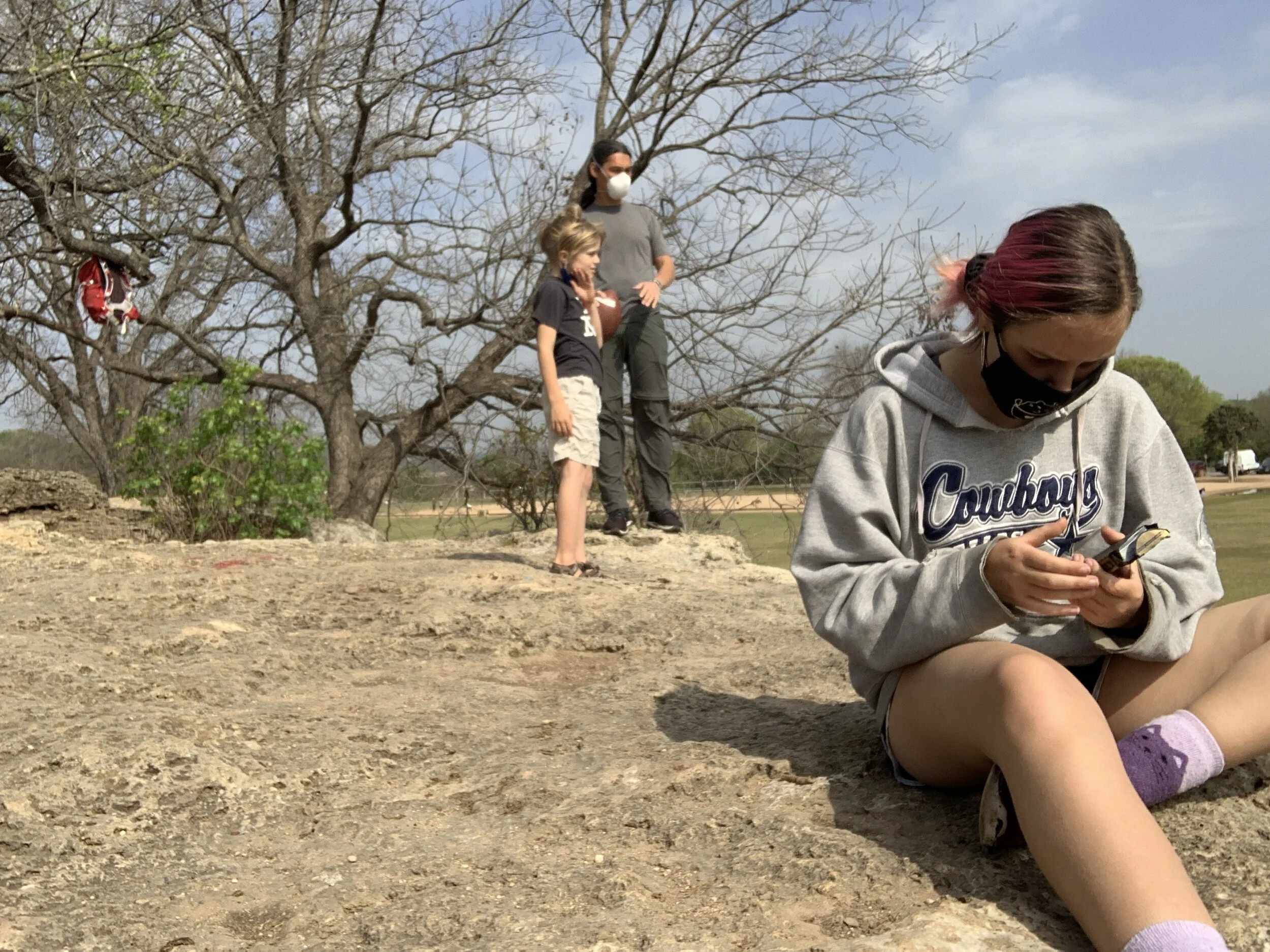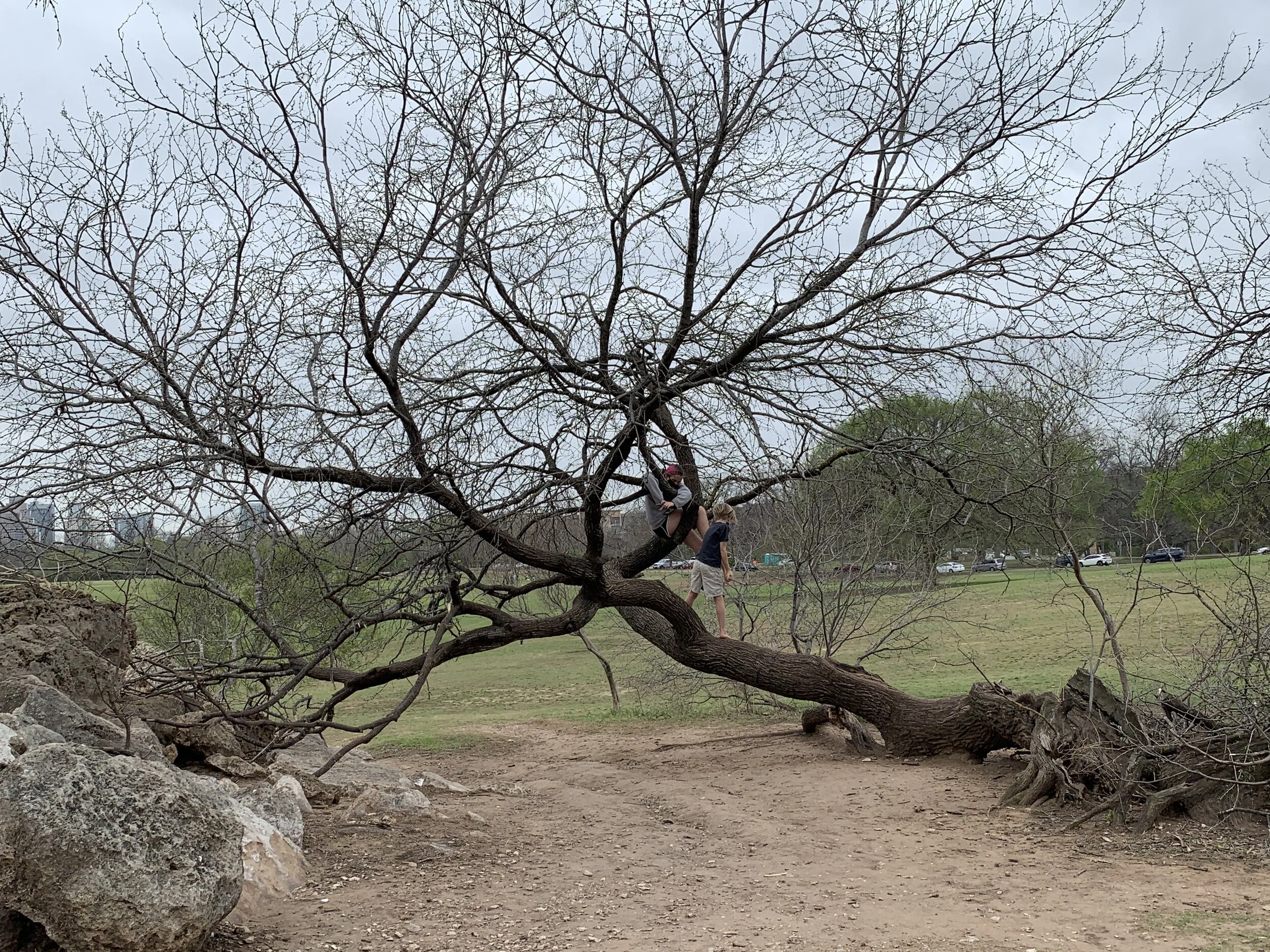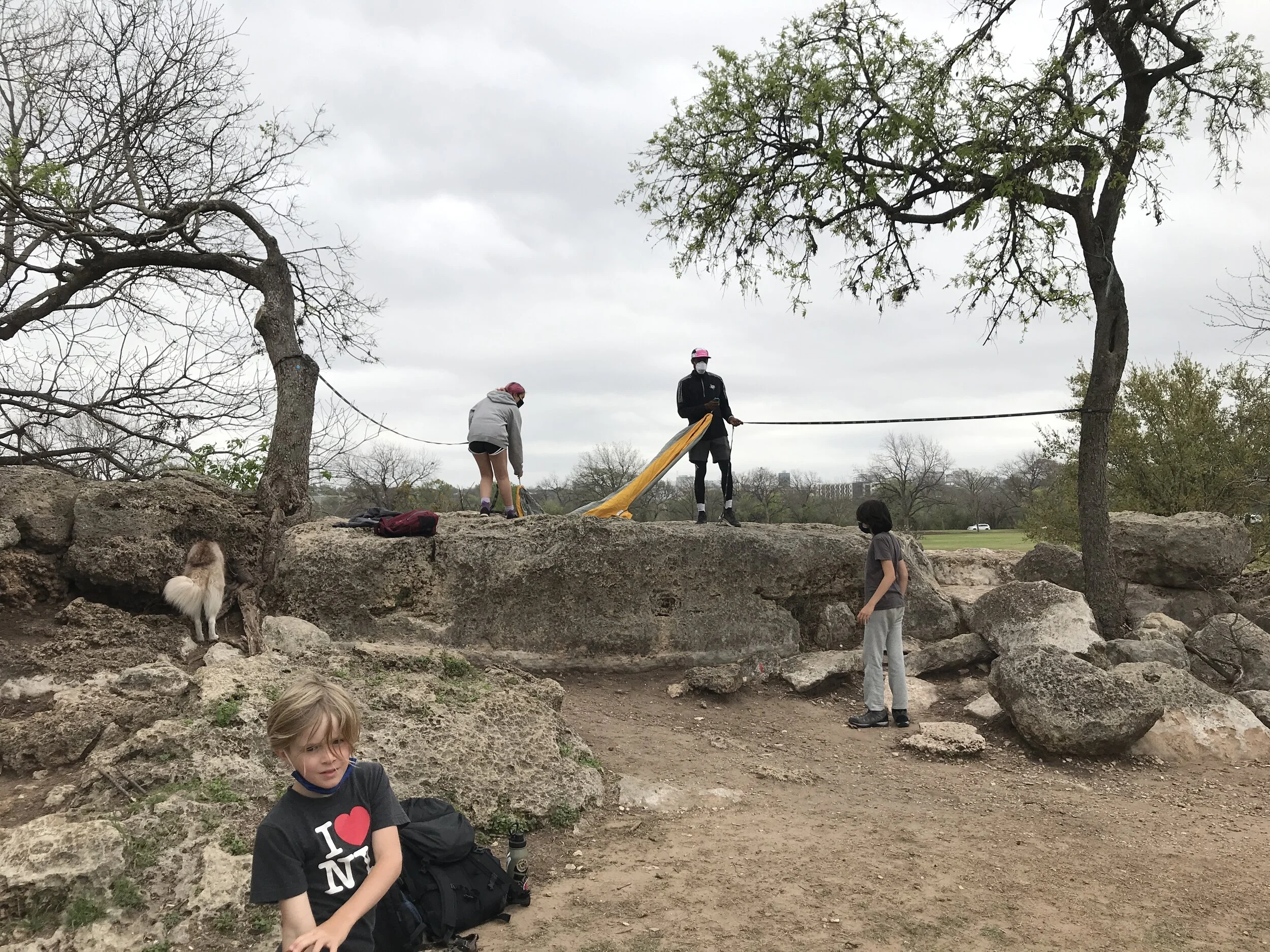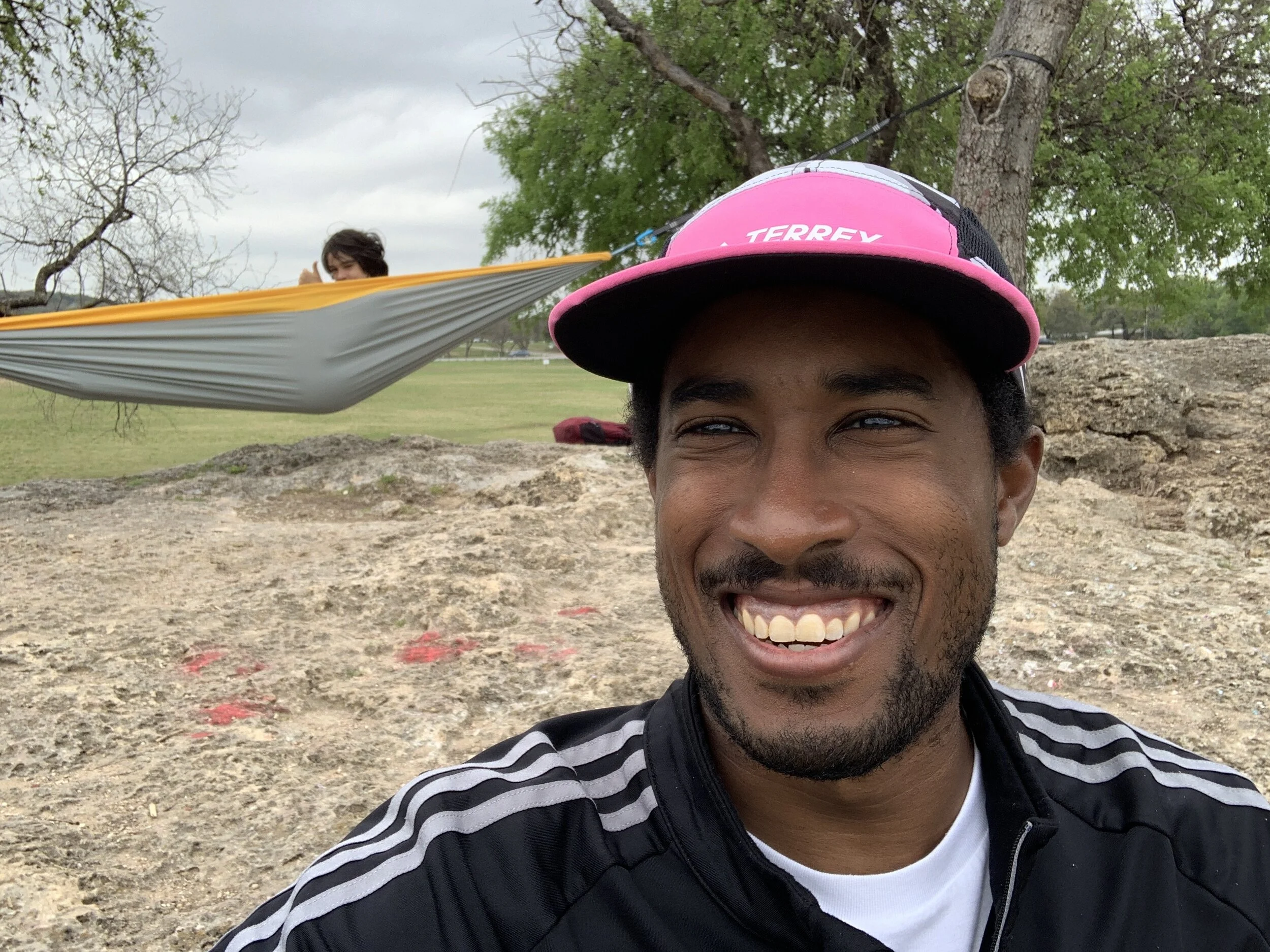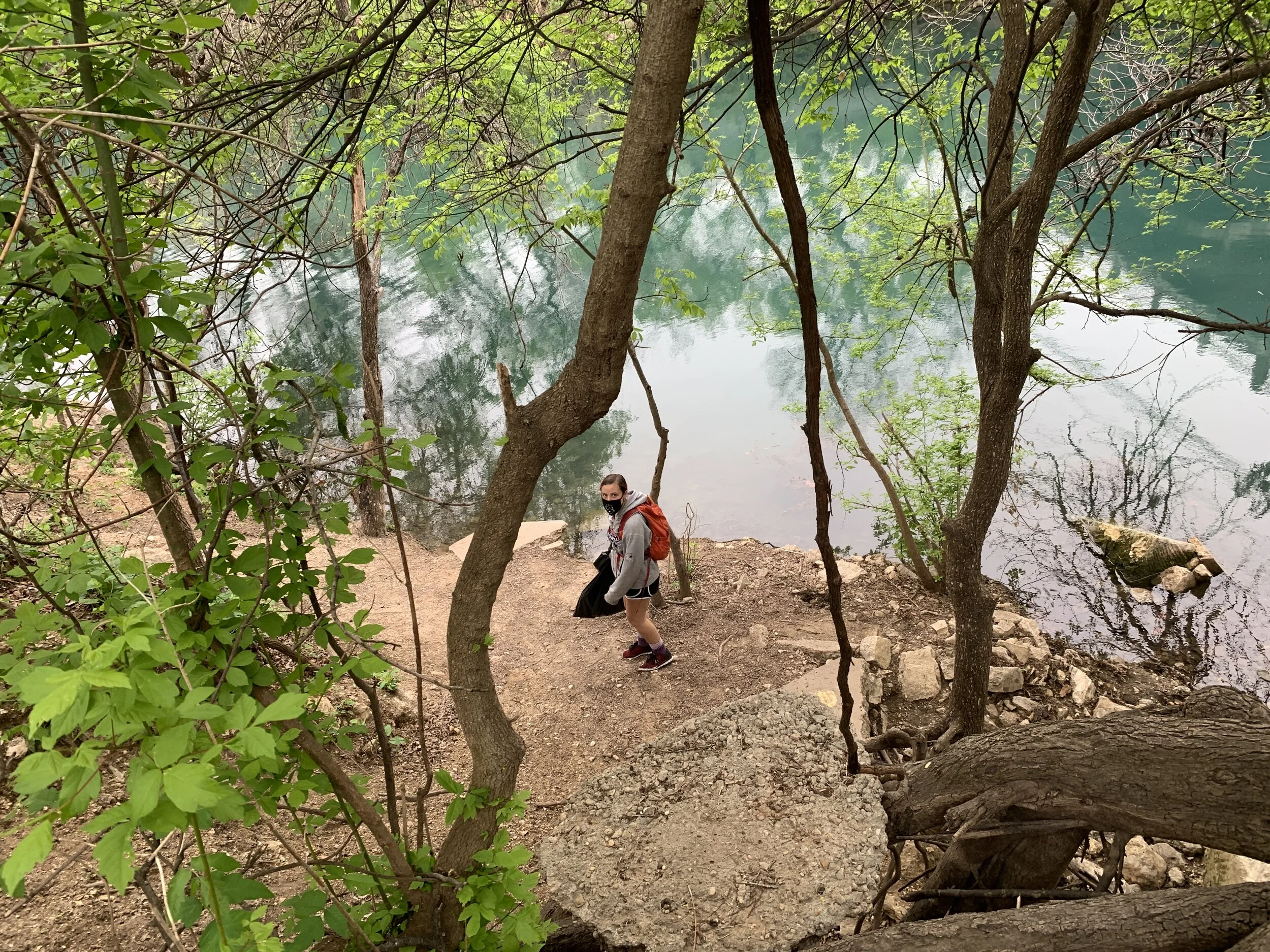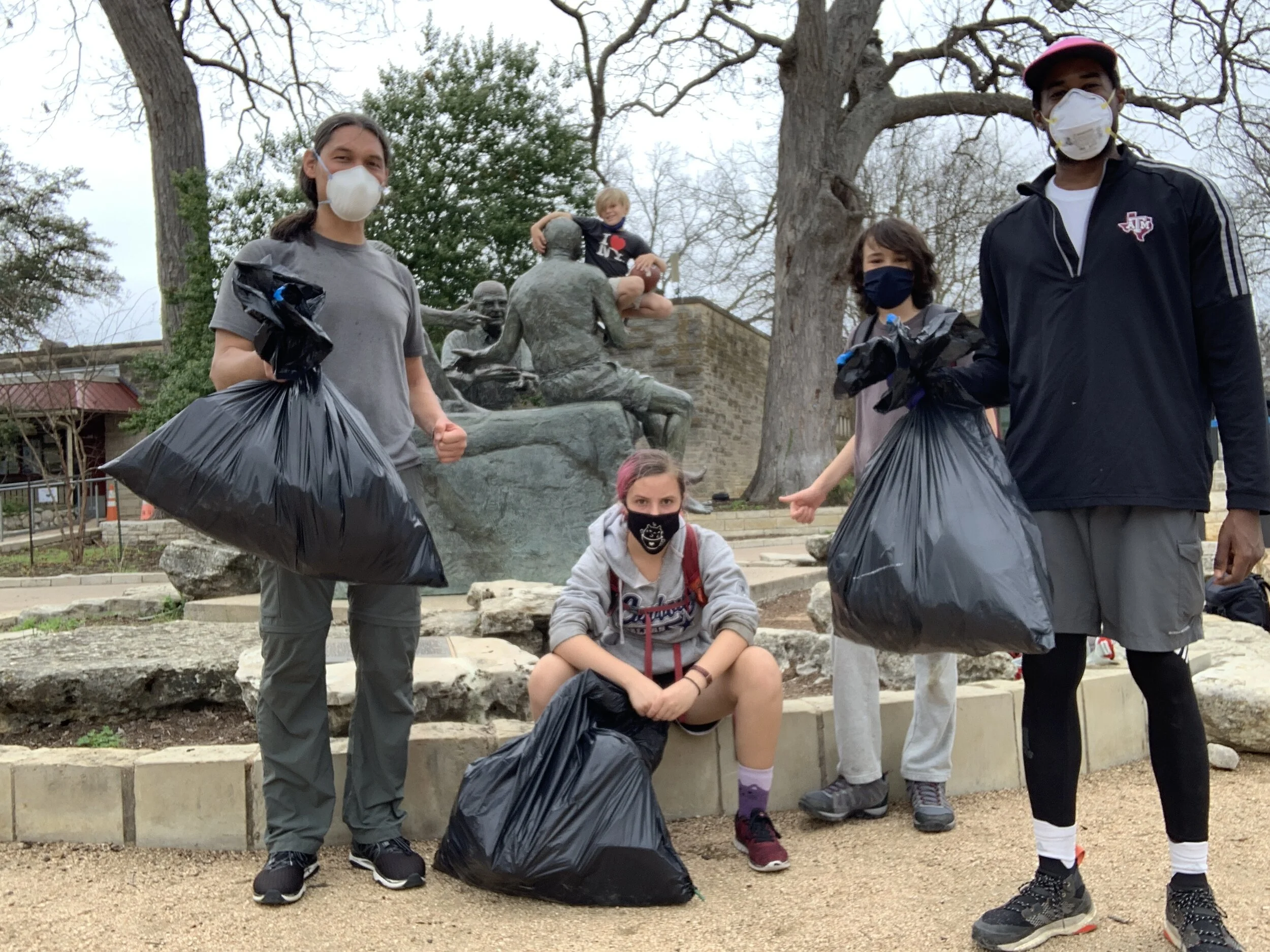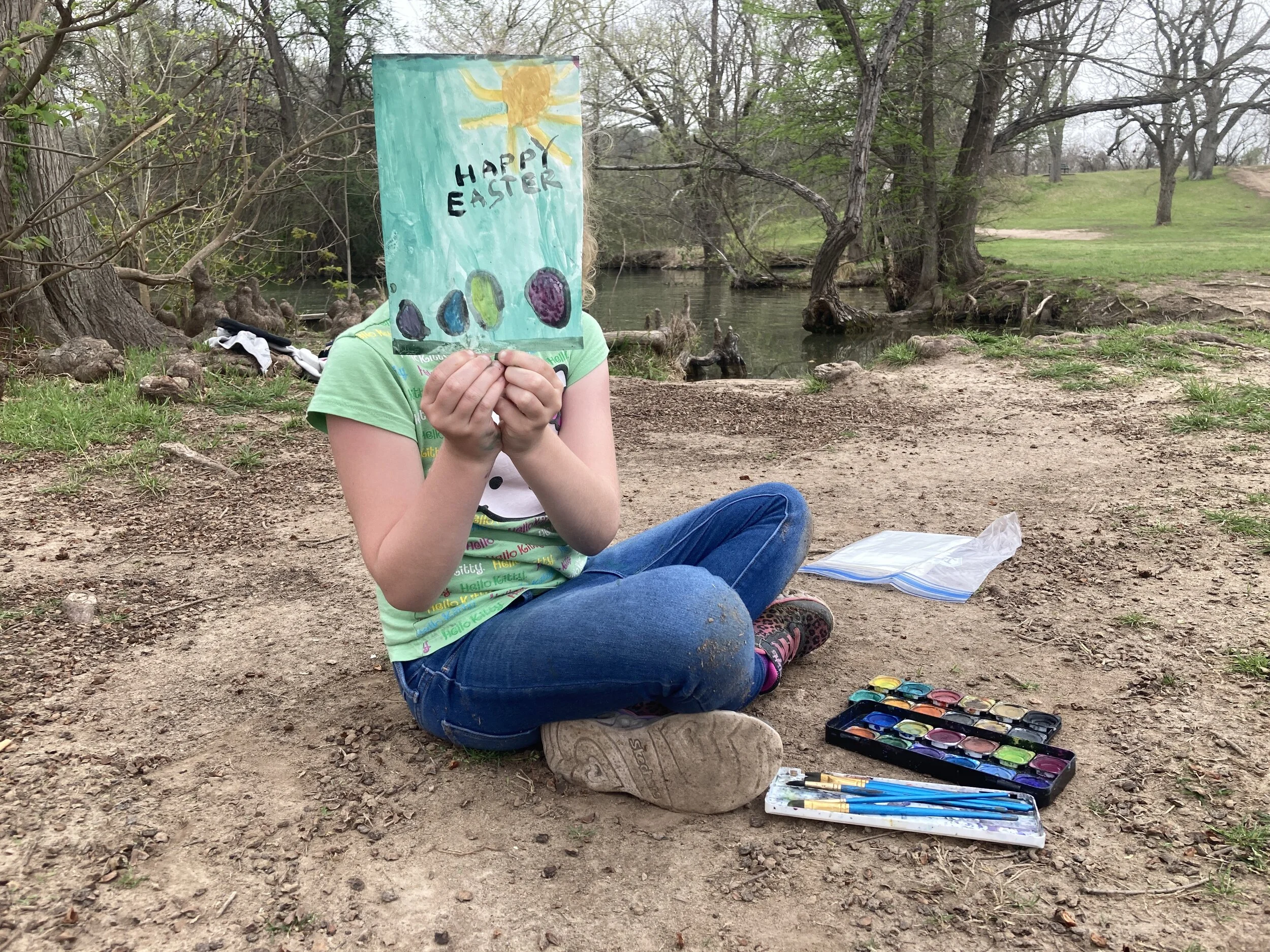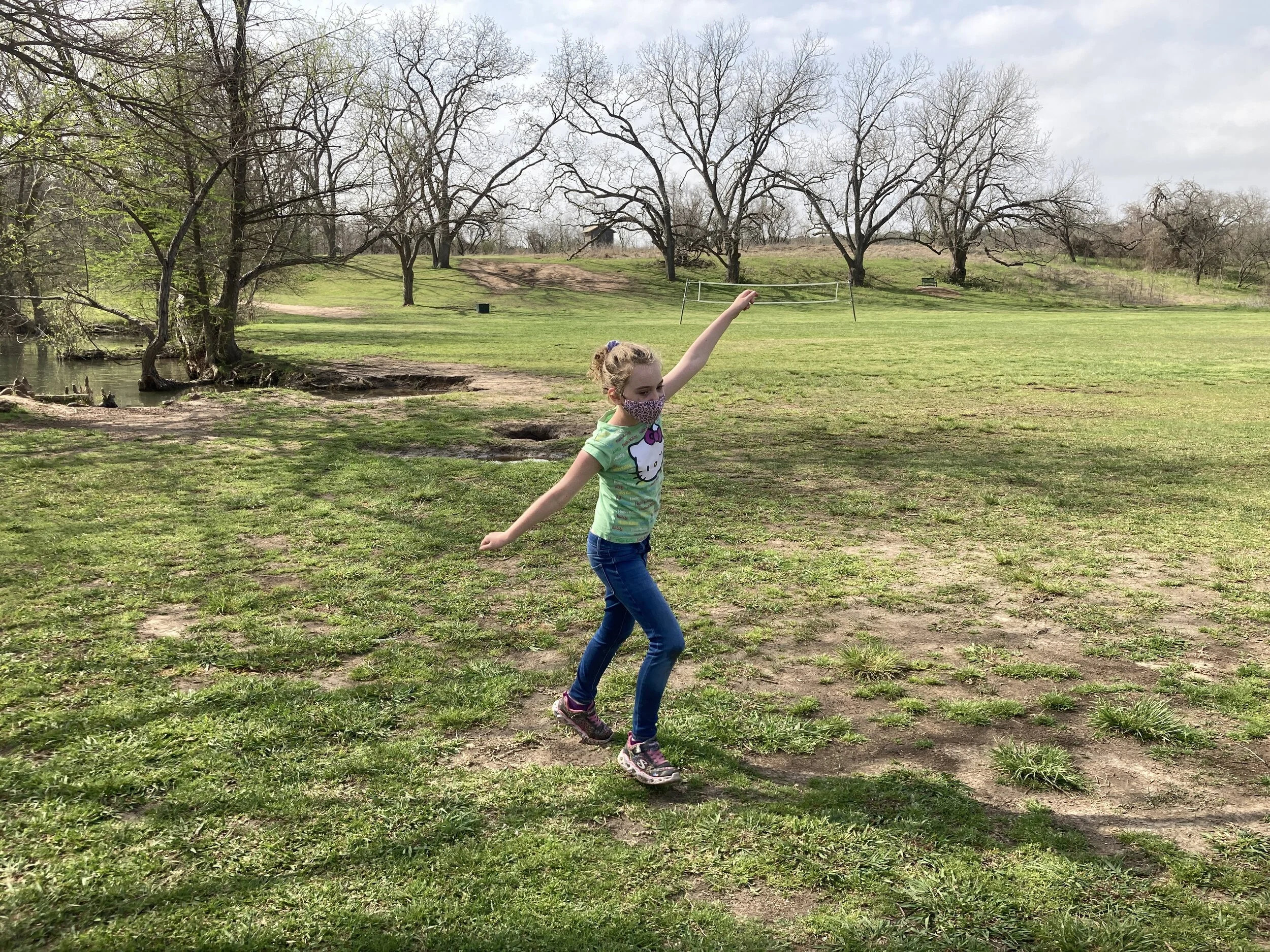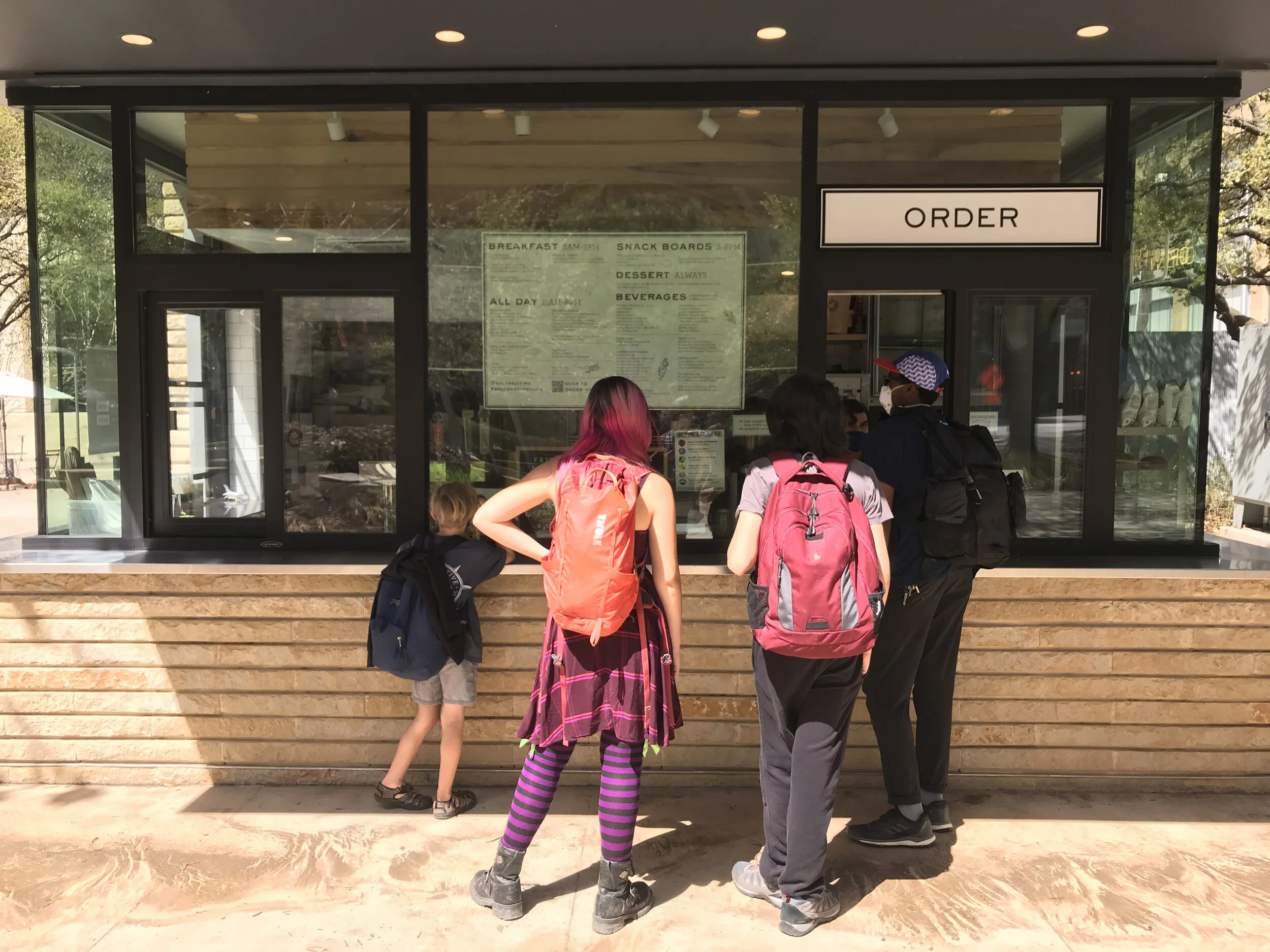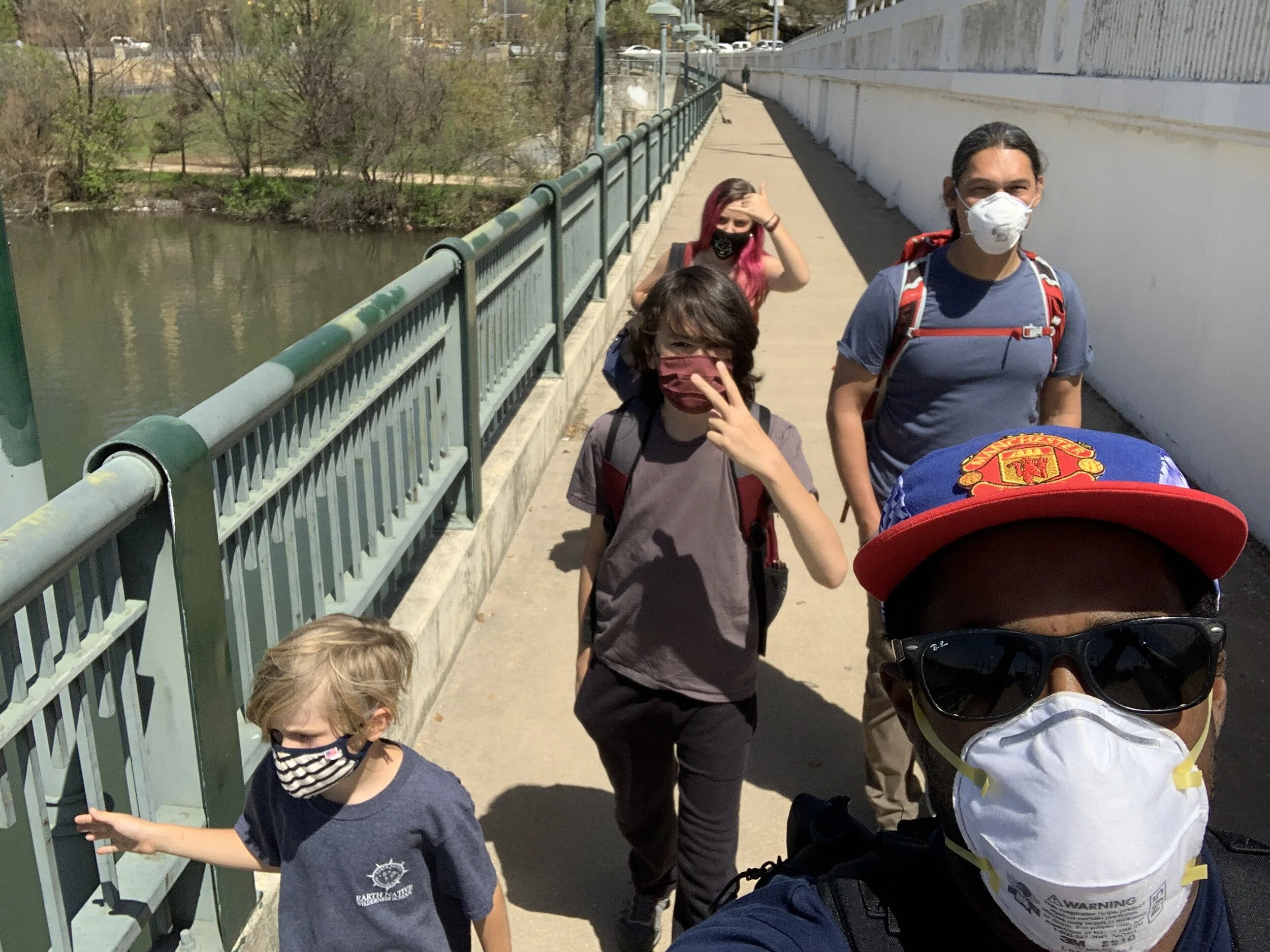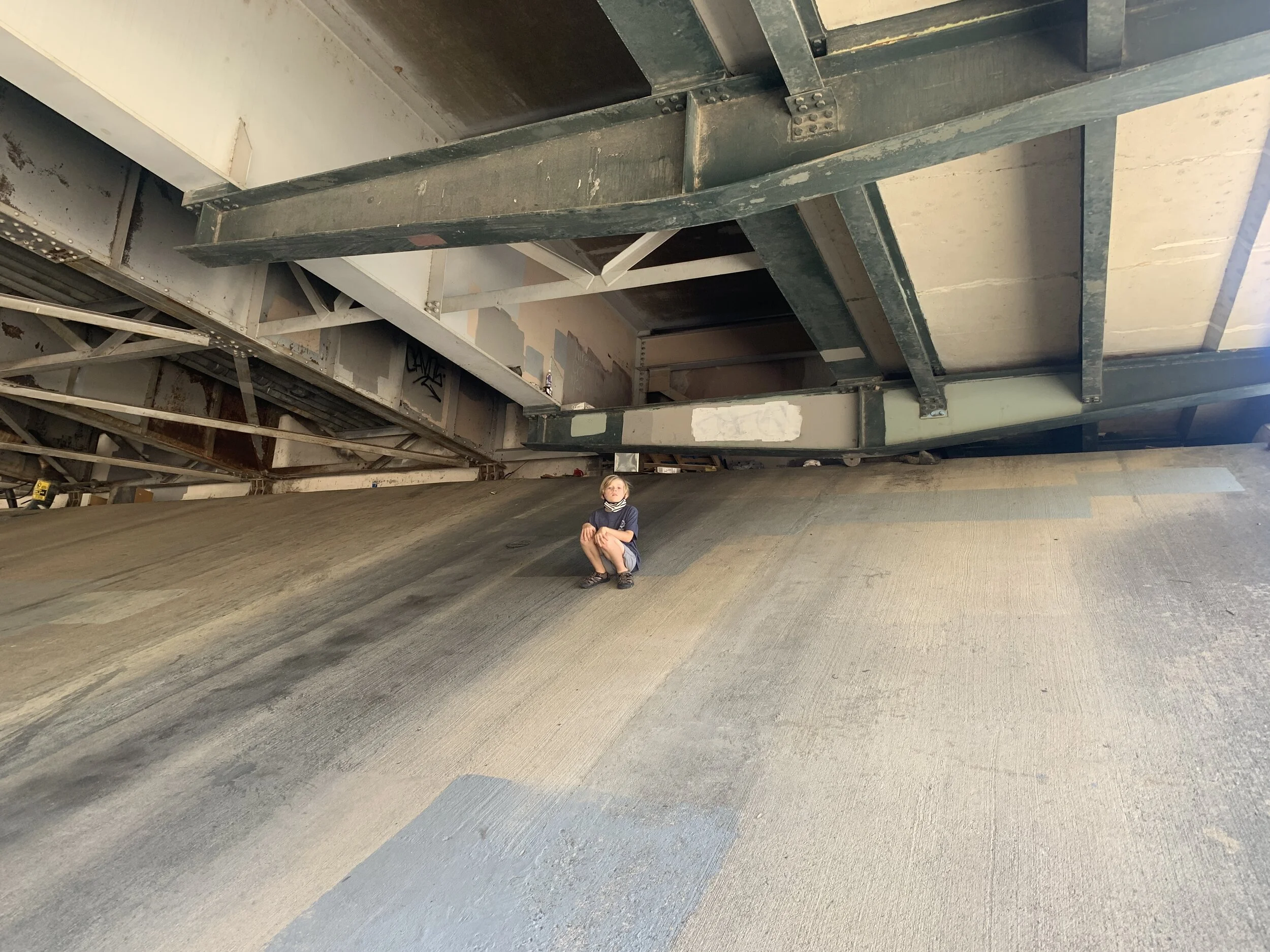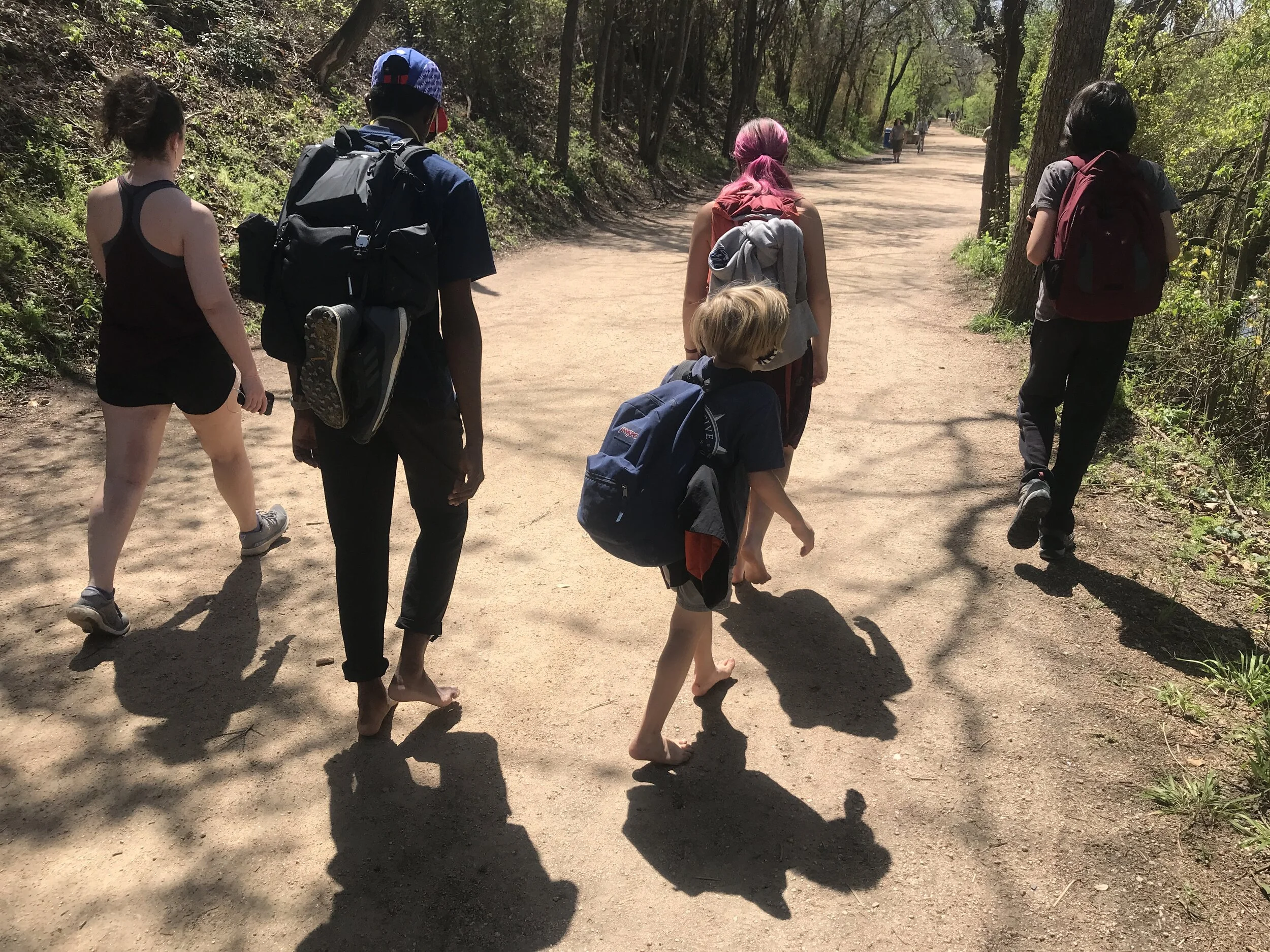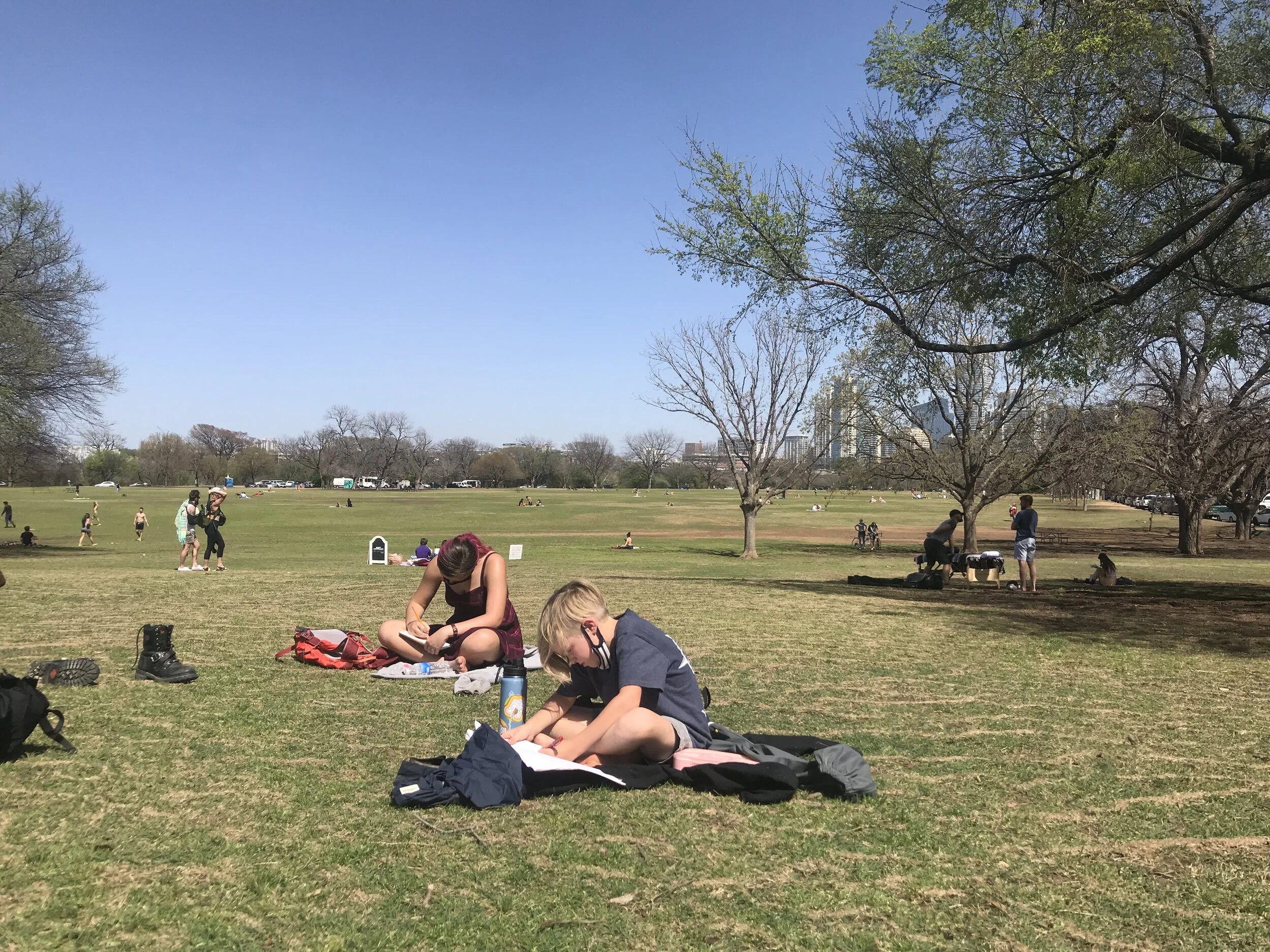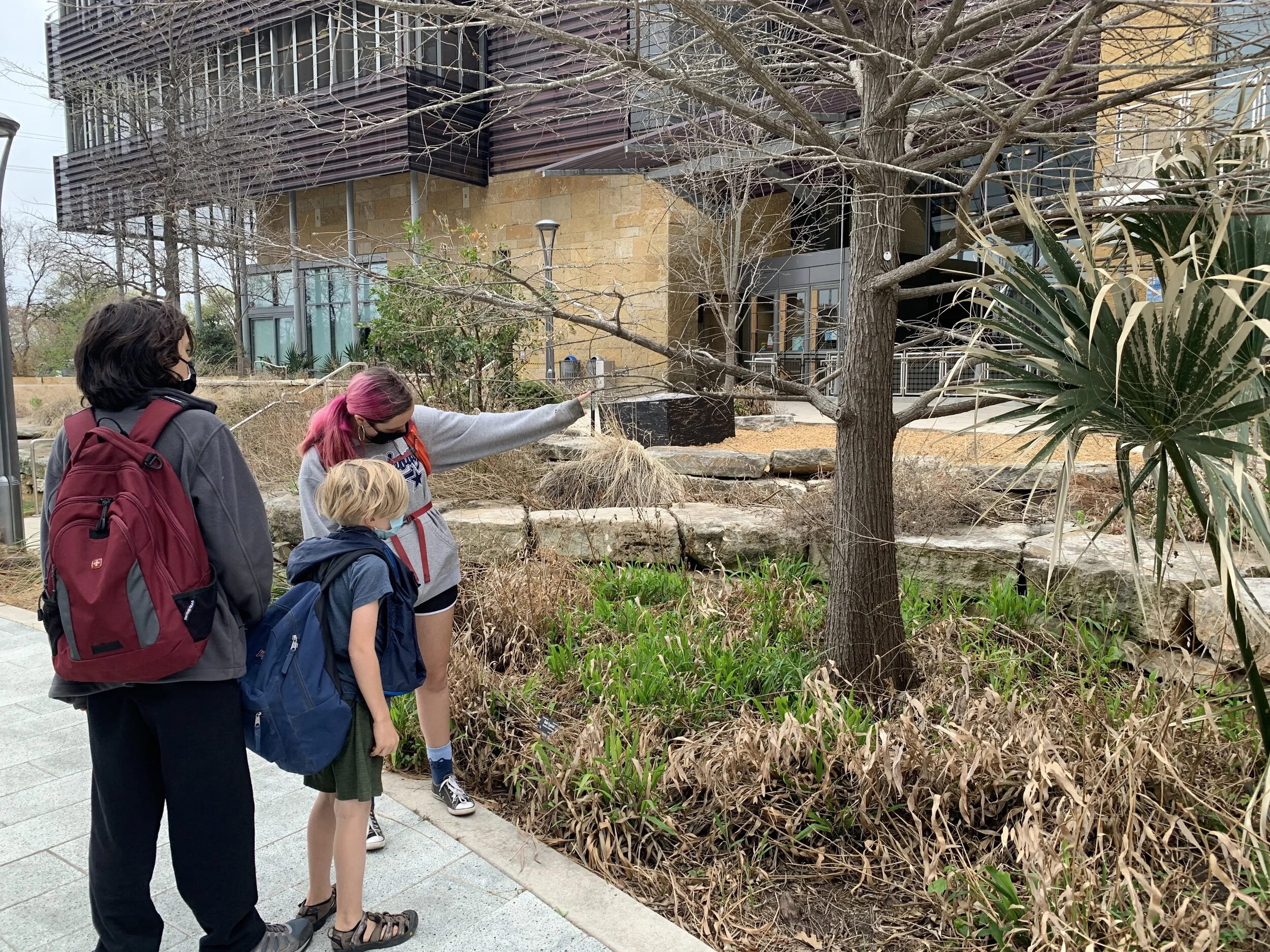Thursday, April 1st, was day 114 of the pandacademic year, and it was April Fools’ Day! All six Learners showed up for Flying Squad, and all of us were on edge for pranks. At the morning meeting one of the adolescent Learners volunteered to be the game master while Facilitator Ariel served as the facilitator. We started with announcements and then awarenesses, and then we each talked about something that we wanted to focus on that day through the end of the cycle, and then we shared ideas for what we could do this week related to social justice. Unsurprisingly, most of the answers to the first prompt revolved around play, particularly at the park we spent much of the prior day at, and the answers to the second prompt were pretty evenly distributed between houseless issues, adultism, white supremacy and racism, the criminal injustice system, and fascist vs antifascist actions. It was a really good, thoughtful morning meeting.
Stretching breaks are needed for Facilitators
There was not much debate about what we should do that day, as the Learners were unanimously in favor of going back to the playground from the day before. Two of the Learners who were not present the prior day were particularly eager to check out what all the hype was. So we ventured out going at a slow pace as we were mindful of the knee problems that Facilitator Ariel was having.
Learner is on lookout for our safety
We stopped at a convenience store along the way so that a younger Learner could get his organic candy treat for the day. We also stopped at the intersection of Lamar and Barton Springs so that I (Facilitator Antonio) could stretch my muscles, particularly my hip flexors which have been really bothering me. I appreciate that the Learners and the stop light are understanding of my needs.
When we got to the park the Learners immediately fanned out to play and push some boundaries. The youngest scaled to the top of the climbing structure and served as lookout, to warn us if any trouble was coming our way.
Continuing to not play fair
It didn’t take long for the Learners to find themselves near the large slide where they engaged in a game of ‘rip the Learner away from the bar and pull him down the slide.’ Typically it takes at least two people, one holding each leg, with some yanking to dislodge a Learner from the bar. We continued to practice until we perfected our technique.
And it got even more violent, later. There was a Godzilla sighting. I feared for the safety of the random schooled kids who don’t know how to keep their heads on a swivel.
In between the climbing, sliding, wrestling, and dislodging there was a good amount of hanging out, eating lunch, and socializing. But what about socializing, right? Apparently we don’t need to age segregate kids and make them sit in class for six hours a day to be socialized.
Radical candor is needed in education
With the Learners so into each other the Facilitators had a lot of time to focus on other things like reading, as Facilitator Ariel did; or having deep conversations, like Facilitator Ariel and a Learner did; or talking about Abrome to curious adults, like I did with the mom of a couple of kids who were at the playground. I had planned to create handouts for when parents ask us what Abrome is, and was quite disappointed that I did not have any handy for the mom. I added that to my ever growing to do list.
Unfortunately, three Learners that carpool together needed to leave at 1:30 p.m., leaving only five of us in the cell. We still played more, and still had fun, but it was a bummer losing half the Learners.
Danger noodle!
I also got to answer survey that I received via text toward the end of the day. The question was, “Should we spend more or less time in classroom teaching students about social justice issues?” I responded, “Classrooms and schools should be abolished. Schools cannot be vehicles for social justice because they’re inherently oppressive and serve to protect the status quo. Good luck.” Unfortunately, most education surveys and studies are focused on how to tinker within the practices and structures of schooling, so they continue to ignore the underlying problems of schooling. My answers always get thrown out as outliers in these surveys.
We had some struggles trying to leave at the end of the day. I chalked it up to exhaustion and dehydration. Ah, dehydration. Drinking water has been a big focus for us all year, and it is a continual struggle. But on a positive note, no one played any April Fools’ tricks on the Facilitators!
At the other cell there was lots of fun in nature. Speaking of nature, they saw a danger noodle! They thought so, at least. They thought it was a water moccasin. But they pulled out their field guides and opened up a web browser on Facilitator Lauren’s phone and worked on positively identifying it. found that it was a non-venomous danger noodle, so not a danger noodle at all.









